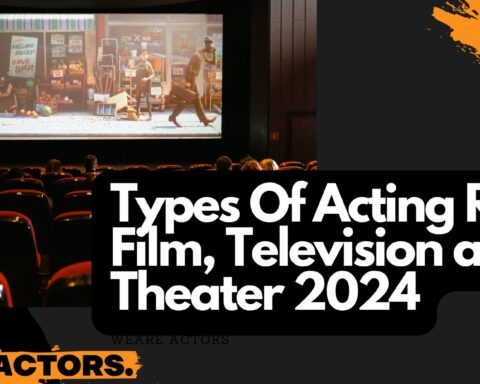
Diving Deep Into the World of Drama Games
Drama games play a crucial role in enhancing the creative, cognitive, and emotional abilities of individuals. They’re not just an incredible source of fun drama, but they also contribute to building a strong foundation of critical soft skills. Let’s explore the key categories of these games and see how they enrich us.
Focus and Listening Games: The Essence of Teamwork and Engagement
These games are designed to refine the listening skills and the attention span of the participants. These are often structured around the circle where participants stand in a circle, and follow prompts involving gestures, movements, or dialogues. For example, the “Zip Zap Zop” game, where participants swiftly pass on these words to each other while maintaining eye contact, or “Freeze and Justify” game where one person freezes in an action and another steps in, continuing the action with a justifiable context.
The benefits of these games are multifarious. They not just build confidence, but also foster teamwork, concentration, and foster a keen sense of understanding others’ non-verbal cues. They also help in reducing performance anxiety among the players, making them theatre game pros!
Imagination and Creativity Games: Igniting the Sparks of Creativity
Imagination and creativity games invite participants to step into a world of fantasy and think outside the box. These improv games like “The Magic Box,” where players pretend to open an imaginary box and interact with whatever they find inside, or “Fortunately/Unfortunately,” where players alternately present positive and negative scenarios, help in unleashing the hidden creativity in them.
These games are wonderful tools to enhance imagination. They foster creative thinking, fun, and encourage the players to express themselves freely. As a result, they boost their confidence and communication skills, making these activities for kids and adults alike.
Tactic Games: The Strategy Powerhouse
Tactic games are a subset of drama games that target problem-solving and strategic thinking. They involve planning, strategizing, and executing actions. For example, games like “Park Bench,” where a player tries to get another player to leave a bench using different tactics, or “The Hitchhiker,” where the driver and passengers adopt the behaviors suggested by the hitchhiker.
Developing tactics and strategies through these games is an exciting and beneficial journey. They sharpen decision-making skills and teach the importance of planning, making them a must-have on your list of drama games.
Characterization Games: The Journey Towards Empathy and Understanding
Characterization games are a fantastic tool to understand and delve into the depths of different characters. Games like “Party Quirks,” where each guest has a unique quirk and the host has to guess it, or “Who Am I,” where players have to guess the character on their back based on others’ interactions, are classic examples.
Learning character development through these games offers immense benefits. They nurture empathy, understanding, and perspective-taking. They also help in theatre, making actors versatile in their roles.
In conclusion, these games and activities are a powerhouse of skills and entertainment. They offer a wide range of benefits, making them one of the most enjoyable and fruitful theatre activities. Whether you’re interested in fun drama games for kids or engaging improv games for your drama team, this guide will serve as a helpful starting point.
Play Drama Games
Playing these games is a fantastic method of teaching drama and creating a fun, engaging environment. They provide an excellent warm-up before diving into more serious theatre work and allow participants to develop essential skills such as creativity, spontaneity, and teamwork. This article will take you through a collection of games that are beloved in drama clubs all over the world.
The first game is Zip Zap Zop, which is often used as a theater game and sometimes as an elimination game. The rules involve participants who sit in a circle, and the game begins when one person sends a ‘clap’ or ‘impulse’ to the next person, saying the word “zip”. Other moves, such as “zap”, send the clap in different directions. This fun game also changes its rules when played in different places, making it a super fun and spontaneous activity. As a teaching drama method, Zip Zap Zop allows students to work on their reflexes and concentration.
The second game on our list is Freeze and Justify. This is a fantastic drama activity to encourage quick thinking and improvisation. Participants perform a scene, and at any given moment, a person can shout “freeze”. The actors must then freeze in their current positions. The person who shouted “freeze” will then take the place of one of the actors and start a new scene, justifying the positions of the actors.
Next, we have The Magic Box. This game helps players to use their imagination. In this game, the facilitator introduces an imaginary box that contains all sorts of props. Each participant then reaches into the box and pulls out an object of their choice, which they must then use in an improvised scene.
Fortunately/Unfortunately is a game that works great for teaching narrative skills. Participants sit in a circle, and the first person starts a story with a sentence that begins with “fortunately”. The next person then continues the story, starting their sentence with “unfortunately”. The game continues, alternating between fortunate and unfortunate situations.
Park Bench is a fun improv game that involves one player sitting on an imaginary park bench. Another player then enters the scene with a certain character trait or behavior. The goal is for the player on the bench to guess the character trait of the other player.
The Hitchhiker is a game that involves four players sitting in an imaginary car. One by one, the players pick up a hitchhiker, who introduces a new character trait that all players in the car must adopt.
Party Quirks is a game that involves one player hosting a party, while the other players are guests with peculiar quirks. The host must guess each guest’s quirk.
Who Am I is another fun game where a player has a post-it note with a name of a celebrity or character stuck on their forehead. The player then asks yes or no questions to the group to guess who they are.
Bippity Bippity Bop is a great warm-up game for a drama lesson. In this game, players stand in a circle and the leader points to a person and says either “Bippity Bippity Bop” or “Bop”. If “Bippity Bippity Bop” is said, the person must say “Bop” before the leader finishes the phrase. If the leader just says “Bop”, the person must remain silent. Any mistakes mean that the person is out.
Bomb and Shield is another fun game where each participant chooses one person to be their bomb and one to be their shield. As they move around the room, they must always keep their shield between themselves and their bomb.
These games not only make the process of learning drama enjoyable but also ensure that the essential skills required in theater are nurtured in an interactive way.
FAQS
Here are some of the most frequently asked questions about drama games and activities:
What are drama games?
They are activities that are designed to build confidence, encourage teamwork, and promote creative thinking. They can be used to warm up participants before a drama class or rehearsal, or simply as a fun way to break the ice.
What are some examples games and activities?
There are many different games and activities. Some examples include improv games, next person, stand in a circle, around the circle, and mime. Other popular options include theater games, warm-up exercises, and activities for kids.
How can games and activities help build confidence?
They can help build confidence by encouraging participants to step outside of their comfort zones and take creative risks. By practicing these games and activities, individuals can develop the skills needed to perform in front of an audience with ease and confidence.
What are some good drama games for kids?
There are many good games for kids, such as “Theater Tag,” “Freeze Tag,” and “What Are You Doing?” These games are designed to be fun and engaging, while also helping kids develop teamwork and creative thinking skills.
How can They be used to promote teamwork?
They can be used to promote teamwork by encouraging participants to work together to achieve a common goal. For example, games like “It’s a Great” and “Once” require participants to work together and communicate effectively in order to succeed.
What are some fun improv games?
There are many fun improv games, such as “Build a Story,” “Last Letter,” and “Party Quirks.” These games are designed to be light-hearted and entertaining, while also helping participants develop their improvisation skills.
How can They be used in a classroom setting?
They can be used in a classroom setting to promote creative thinking, build confidence, and improve communication skills. By incorporating these games into their lessons, teachers can help students develop their social and emotional intelligence, as well as their ability to work effectively in a team.
What are some drama tips for beginners?
Some drama tips for beginners include practicing breathing exercises and physical warm-ups, practicing tongue twisters to improve enunciation, and watching other actors perform to learn from their techniques. It is also important for beginners to stay open-minded and willing to take creative risks.







